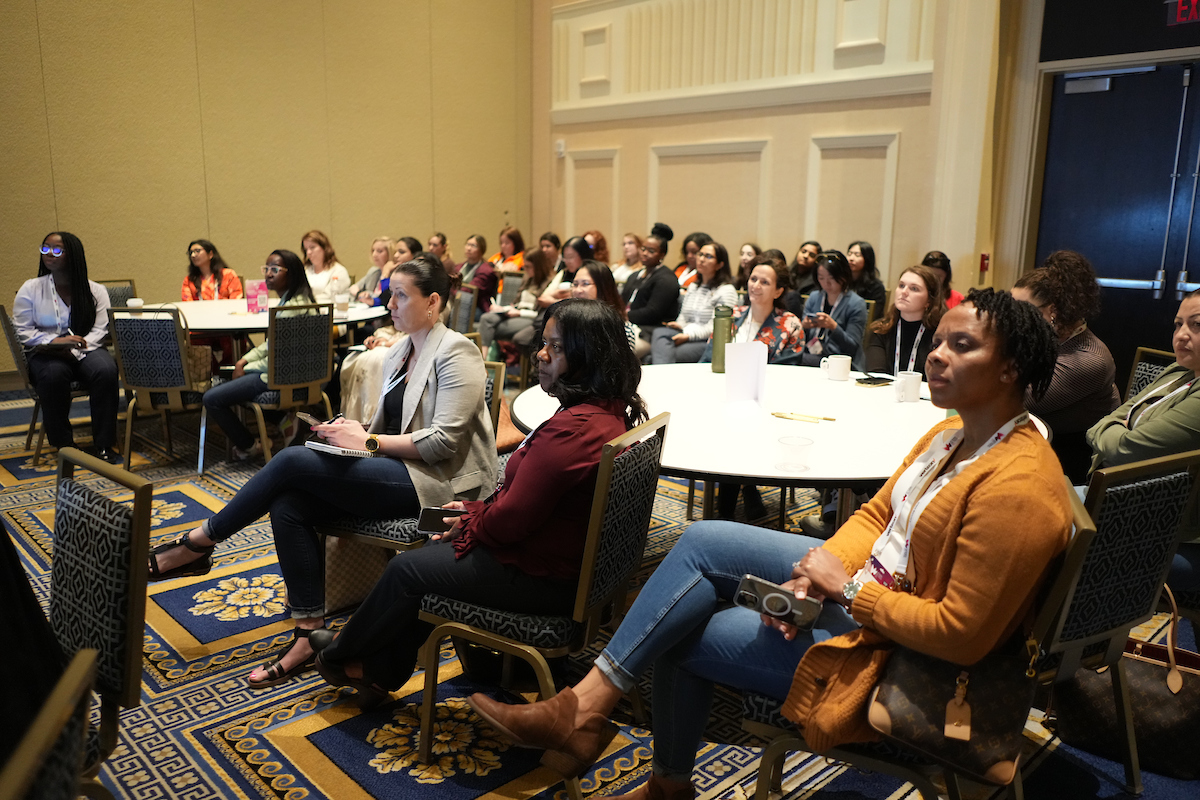Even with the great amount of headway women in tech professions made in past years, many still contend with being spoken over, enduring pay gaps and facing labels like “bossy.”
These dynamics, alongside recognizing progress and individual women leaders, formed the focus of the first Women in Tech DC conference.
The two-day event, which took place in mid-May, brought 600 attendees from across the country and world to the Gaylord National Resort and Convention Center at the National Harbor. Those visitors included major industry leaders across the industry, including several speakers from the US Chamber of Commerce and McLean, Virginia-based banking giant Capital One.
Three such executives outlined their journey to the C-suite in a fireside chat on the first day of the event: Amy Doherty, the CIO and vice president of The World Bank, and Judith Apshago, the CIO at Amtrak, discussed their own paths with Sage Communications President Julie Murphy.
The trio discussed how they’ve encountered gender bias throughout their careers, and also how they take a stand against it for themselves and other women.
“Women really have to deal with this, this bias of being likable and also being competent,” said Doherty. “You hear things about women, like they’re shrill, or they’re bossy. These words that you would never, ever hear associated with men.”
Several conference attendees agreed with the speakers, including Nicole Maaguo, the founder of the women-focused professional coaching firm Ambition Unboxed. The bias women face is less obvious than it used to be, she said, but it’s still very much there.
“Women have the credentials and often outperform their male peers. Despite excelling, women are often expected to do more with less, not given direct reports at the same rate, dismissed as thought leaders and overlooked for leadership roles,” she said. “These factors compound to manifest as lost influence and earnings.”
“The reality for many women in tech is that gender bias is alive and well; it’s just subtler and much harder to prove these days,” she added.
Jennifer Wu, a software engineer for Tysons, Virginia-based cloud security product company Alarm.com, agreed that the bias is subtler.
“I regularly feel like I can’t contribute as much and speak up as much in meetings or other more technical discussions,” she said. “It’s not that I’m being talked down to, or that people directly tell me I don’t have anything meaningful to share.”
“Oftentimes it’s a lot more subtle, like being talked over or interrupted frequently, or when I share something and someone else says it again, but louder, and they get the credit for it,” Wu added. “As a result, I feel a lot less inclined to try to participate.”







